Bariatric surgery is an effective procedure that creates significant change within your body. It allows you to lose weight, be healthier, and live your life without worrying about your weight. But as with any surgery, it’s essential to know the changes that occur within the body.
The gastrointestinal tract changes after bariatric surgery and dietary intake decreases. This is how folate deficiency develops after bariatric surgery. It occurs in up to 65% of post-bariatric surgery patients.
Taking a daily multivitamin specific for post-bariatric patients corrects this.
The role of folate in the body
Folate, or Vitamin B9, plays an important role in the body’s DNA and genetic material. It helps with cell division, tissue growth, producing DNA, and red blood cell formation. Without it, your cells would not be able to grow and function.
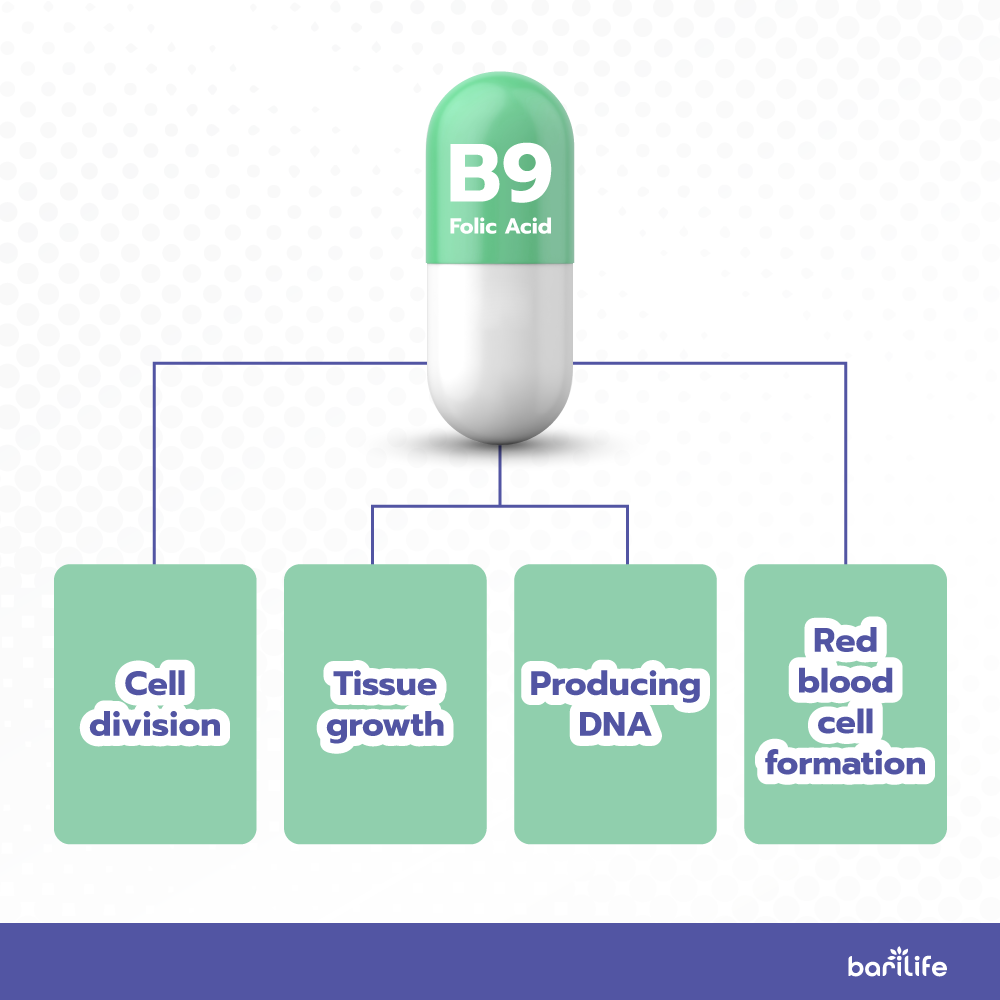
While it’s naturally present in many foods, folate is especially high in liver and dark green leafy vegetables. Folic acid is the chemically synthesized version of folate. It is a dietary supplement found in many fortified foods like cereal, grains, and flour.
Daily guidelines for folate
According to the American Society for Metabolic and Bariatric Surgery Journal (ASMBS), folate deficiency occurs in 65% of post-bariatric surgery patients.
Most of the time, non-adherence to the recommended daily multivitamin following bariatric surgery is the culprit. But if you take a multivitamin specifically for post-bariatric surgery patients, like one from Bari Life, you ensure essential folate supplementation.

The ASMBS recommends that folate intake should be 400mcg – 800mcg after bariatric surgery. They also recommend your folate intake should not exceed 1000mcg each day.
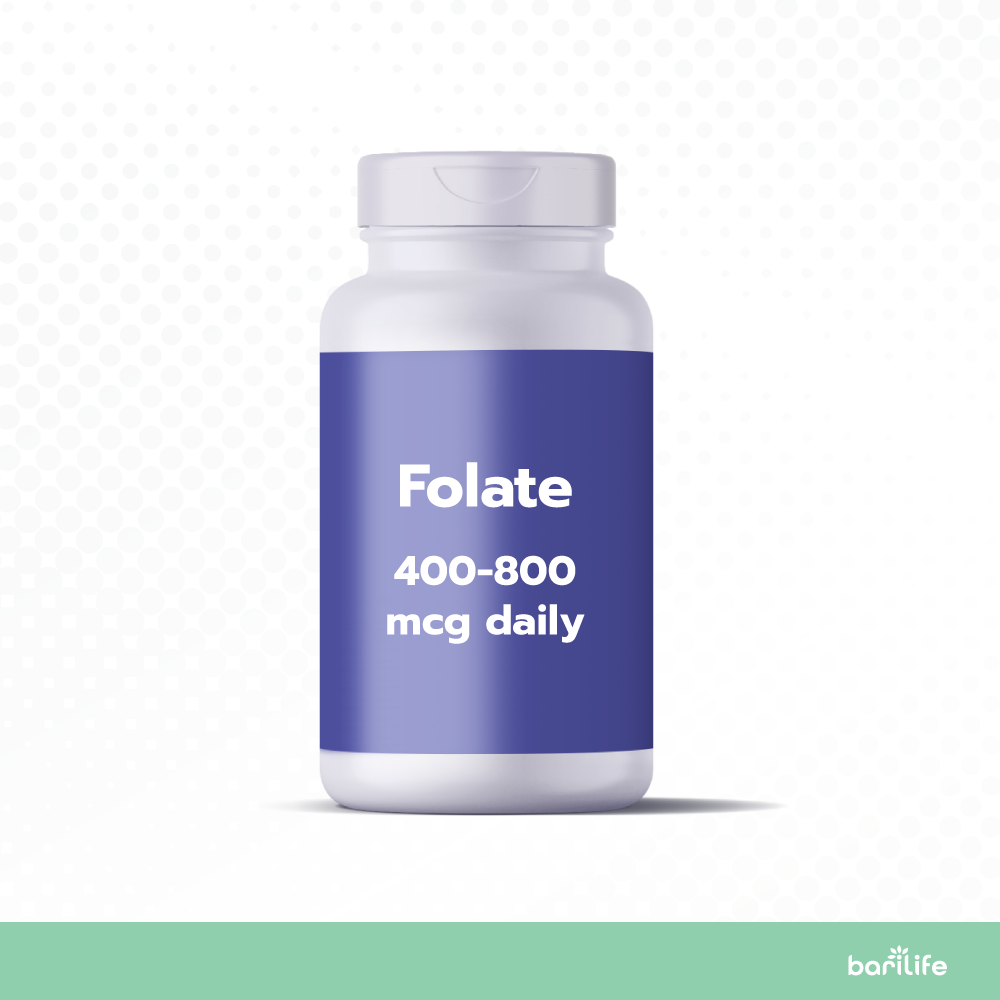
Each of Bari Life’s Complete Bariatric Vitamin Tablets meets or exceeds the ASMBS guidelines. There is 800 mg of folic acid in each product. Check them out here.
Causes of folate deficiency
Folate is commonly fortified in many foods so folate deficiency is typically rare in most individuals eating a varied Western/American diet.
However, after bariatric surgery, folate deficiency is common. With a change in eating habits and the digestive system, folate deficiency is well documented. This is why supplementation is so essential.
Causes of Folate Deficiency After Bariatric Surgery:
- Inadequate dietary intake. Bariatric patients have both a decreased oral intake and specific dietary guidelines after surgery. Folate is a water-soluble vitamin and cannot be stored within the body, leading to an elevated risk for deficiency.
- Changes in gastrointestinal structure and size. The normal digestion process changes after surgery. This leaves the post-bariatric patient susceptible to vitamin deficiencies.
Taking a daily multivitamin is the easiest way to prevent folate deficiency after bariatric surgery. Make sure to take one that meets the ASMBS guidelines.
Looking for an all-in-one multivitamin that gives you everything you need after surgery? Our multivitamins meet or exceed all the ASMBS guidelines. Bari-Life’s Complete Bariatric Vitamin Tablets are just what you need.
Symptoms of folate deficiency
Folate deficiency after bariatric surgery can produce a variety of symptoms, including:
- Fatigue
- Diarrhea
- Certain types of anemias
- Peptic ulcers
- Mouth ulcers
- Swollen tongue
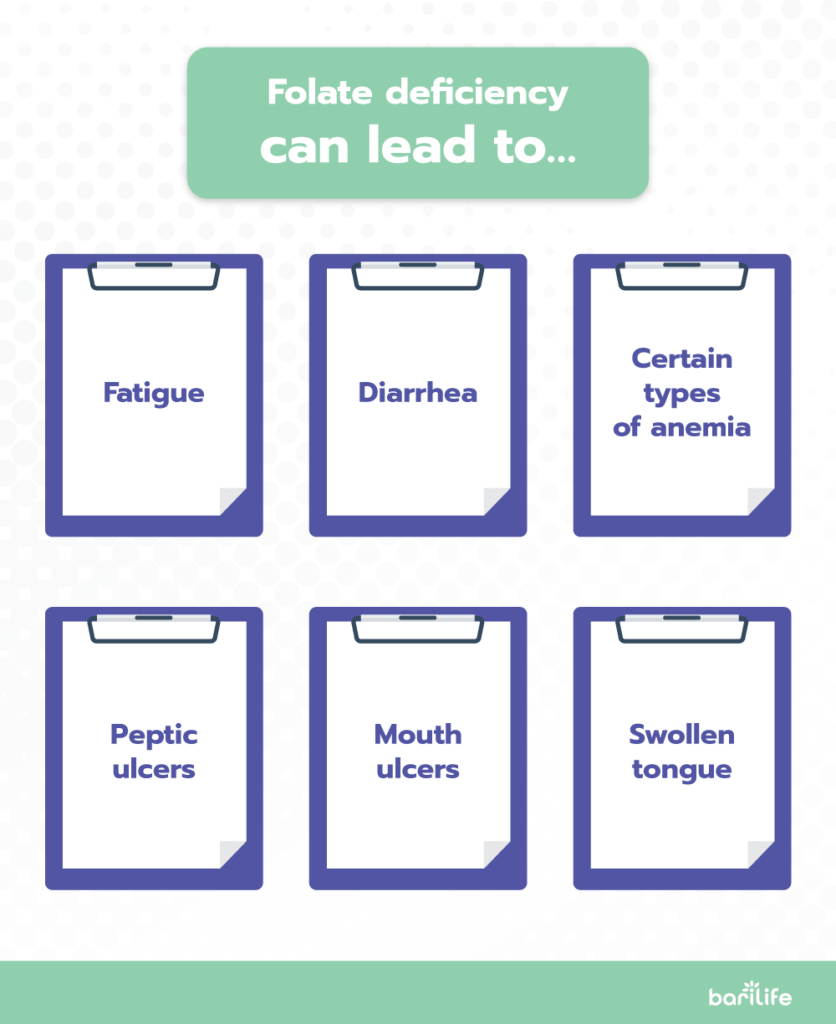
If you notice any of the above symptoms, let your doctor know. If you discover you have a folate deficiency after bariatric surgery, supplementation helps.
Complications of folate deficiency after bariatric surgery
If left untreated, folate deficiency can lead to anemia. Anemia is a condition characterized by too few red blood cells (RBCs). The RBCs carry oxygen throughout the body. Without enough RBCs such as with anemia, your cells and tissues become deprived of oxygen. This affects how they function.
Symptoms of Anemia Include:
- Weakness
- Lethargy
- Shortness of breath
- Pale skin
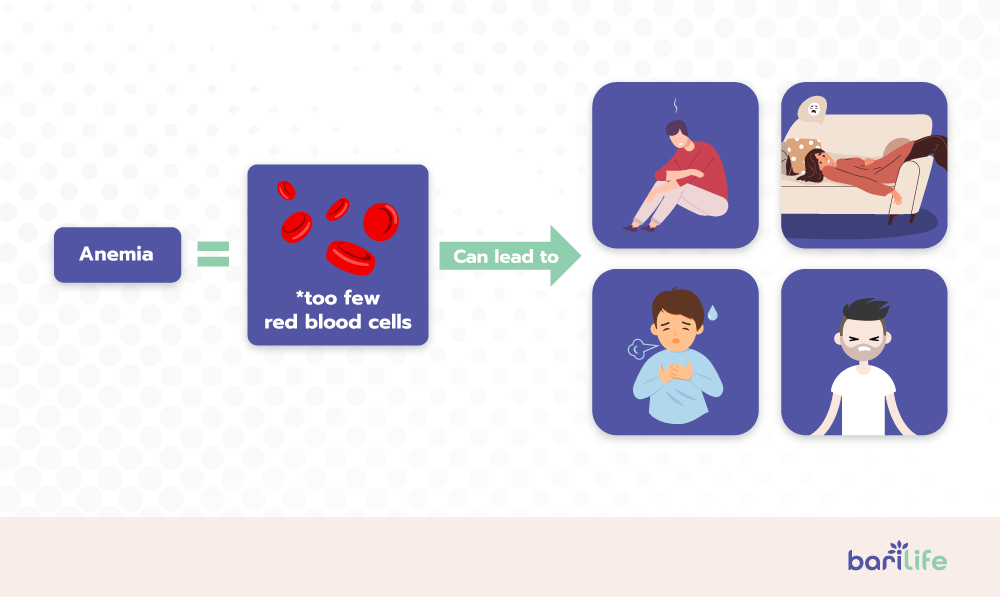
If you begin to notice these signs, talk to your healthcare provider. They will guide you on how to manage your symptoms and work towards eliminating the anemia.
Multivitamins for folate deficiency
To prevent folate deficiency after bariatric surgery, choose a multivitamin with 400-800mcg of folate. The best way to do this is to find one that’s made specifically for you. That way you get all the essential vitamins and minerals you need for your body after surgery.
Bari Life has just what you need. Our Complete Bariatric Vitamin Tablets meet or exceed all the ASMBS guidelines for post-surgical supplementation. Plus, you only need to take one – no other daily vitamin supplement is needed.
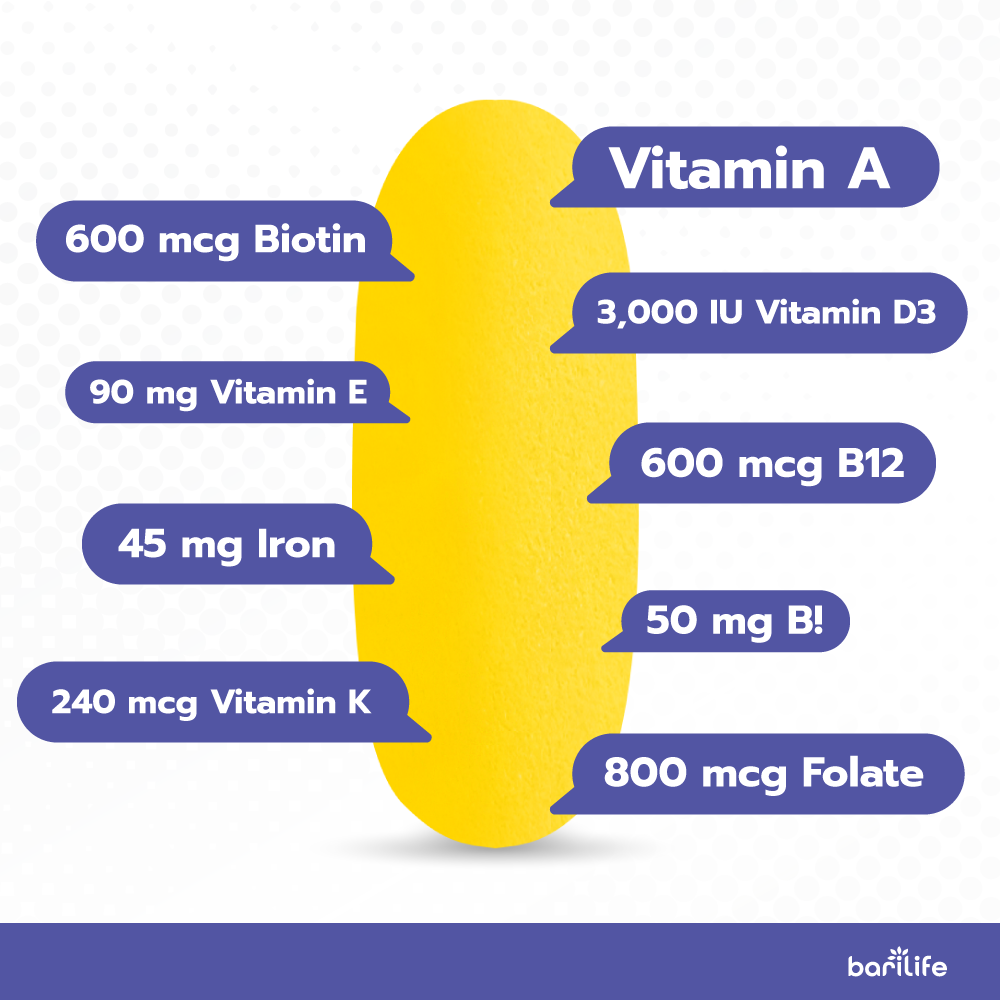
Post-bariatric surgery patients have a unique set of needs. Make sure you choose a multivitamin that meets your needs. Simplify your bariatric vitamin regimen and choose Complete Bariatric Vitamin Tablets by Bari-Life.




What are your tips and tricks to post-bariatric success?